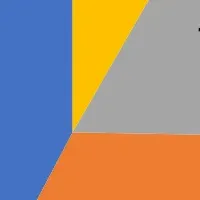
Revolutionizing Healthcare: Google Cloud's AI Innovations in Vertex AI Search Enhance Patient Care
In a significant move aimed at transforming healthcare delivery, Google Cloud has announced the introduction of advanced generative AI capabilities in its Vertex AI Search for healthcare. This includes the powerful new feature called Visual QA, designed to enhance how healthcare professionals access critical patient information. Additionally, the introduction of Gemini 2.0 as part of the offering is set to elevate the efficiency and accuracy of healthcare data processing.
The innovation of Visual QA allows clinicians to utilize various types of inputs, including tables, charts, and diagrams, directly in their searches. This breakthrough means that healthcare providers can analyze information in formats that were previously cumbersome to process. For instance, a diagram showcasing a patient’s injury can now be entered directly into the system, combined seamlessly with other relevant data contained in patient forms, such as indications about therapeutic shoe usage or other symptoms.
As Aashima Gupta, the global director of Healthcare Strategy & Solutions at Google Cloud, explains, the new multimodal capabilities facilitate a comprehensive view of patient health. Customarily, healthcare data is predominantly visual—up to 90% in forms like X-rays or scans. By employing these advanced AI capabilities, practitioners can extract meaningful insights from diverse data types, encompassing medical images, genetic information, and patient histories. This integration serves to create a more holistic understanding of a patient’s health, subsequently leading to better-informed clinical decisions and tailored treatments.
The unique aspect of Vertex AI Search within the Google Cloud platform lies in its design to support developers in creating sophisticated assistive technologies for interrogating and retrieving complex medical data. With the addition of Visual QA and Gemini 2.0, this platform is now equipped with enhanced functionalities that empower healthcare providers in their daily operations.
Among those adopting these transformative tools is Counterpart Health, which focuses on improving value-based care through proactive chronic disease management. Dr. David Tsay, the chief medical officer of Counterpart Health, emphasizes that the new features in Vertex AI Search offer potent capabilities to integrate varied clinical data, enhancing clinicians' understanding of patient conditions and ultimately fostering improved care management.
Similarly, MEDITECH, a prominent electronic medical record provider, is leveraging these new advancements to evolve its Expanse EHR. Through collaboration with Google Cloud, MEDITECH aims to enhance its AI-powered search capabilities further, promoting an environment where care teams can quickly locate vital information using AI’s familiar frameworks.
Furthermore, Suki, an AI-driven platform aimed at streamlining physician workflows, recently integrated the new summarization and clinical quality assurance features into its Suki Assistant, also depending on Google Cloud's technology. As Punit Soni, CEO of Suki, notes, these advancements reflect a concerted effort to push the boundaries of multimodal AI in healthcare, effectively aiding clinicians in accessing crucial information efficiently, thereby allowing them to dedicate more time to patient care.
Google Cloud is continuously redefining the landscape of healthcare technology with its unparalleled AI capabilities, helping providers across 200 countries leverage AI tools to enhance patient care. With its robust infrastructure and state-of-the-art generative AI models, Google Cloud stands as a key technology partner in the ongoing evolution of healthcare. This innovative approach not only promises improved patient outcomes but also signifies a broader trend where integrated technology solutions become essential bedrocks of modern healthcare services.
The innovation of Visual QA allows clinicians to utilize various types of inputs, including tables, charts, and diagrams, directly in their searches. This breakthrough means that healthcare providers can analyze information in formats that were previously cumbersome to process. For instance, a diagram showcasing a patient’s injury can now be entered directly into the system, combined seamlessly with other relevant data contained in patient forms, such as indications about therapeutic shoe usage or other symptoms.
As Aashima Gupta, the global director of Healthcare Strategy & Solutions at Google Cloud, explains, the new multimodal capabilities facilitate a comprehensive view of patient health. Customarily, healthcare data is predominantly visual—up to 90% in forms like X-rays or scans. By employing these advanced AI capabilities, practitioners can extract meaningful insights from diverse data types, encompassing medical images, genetic information, and patient histories. This integration serves to create a more holistic understanding of a patient’s health, subsequently leading to better-informed clinical decisions and tailored treatments.
The unique aspect of Vertex AI Search within the Google Cloud platform lies in its design to support developers in creating sophisticated assistive technologies for interrogating and retrieving complex medical data. With the addition of Visual QA and Gemini 2.0, this platform is now equipped with enhanced functionalities that empower healthcare providers in their daily operations.
Among those adopting these transformative tools is Counterpart Health, which focuses on improving value-based care through proactive chronic disease management. Dr. David Tsay, the chief medical officer of Counterpart Health, emphasizes that the new features in Vertex AI Search offer potent capabilities to integrate varied clinical data, enhancing clinicians' understanding of patient conditions and ultimately fostering improved care management.
Similarly, MEDITECH, a prominent electronic medical record provider, is leveraging these new advancements to evolve its Expanse EHR. Through collaboration with Google Cloud, MEDITECH aims to enhance its AI-powered search capabilities further, promoting an environment where care teams can quickly locate vital information using AI’s familiar frameworks.
Furthermore, Suki, an AI-driven platform aimed at streamlining physician workflows, recently integrated the new summarization and clinical quality assurance features into its Suki Assistant, also depending on Google Cloud's technology. As Punit Soni, CEO of Suki, notes, these advancements reflect a concerted effort to push the boundaries of multimodal AI in healthcare, effectively aiding clinicians in accessing crucial information efficiently, thereby allowing them to dedicate more time to patient care.
Google Cloud is continuously redefining the landscape of healthcare technology with its unparalleled AI capabilities, helping providers across 200 countries leverage AI tools to enhance patient care. With its robust infrastructure and state-of-the-art generative AI models, Google Cloud stands as a key technology partner in the ongoing evolution of healthcare. This innovative approach not only promises improved patient outcomes but also signifies a broader trend where integrated technology solutions become essential bedrocks of modern healthcare services.
Topics Health)










【About Using Articles】
You can freely use the title and article content by linking to the page where the article is posted.
※ Images cannot be used.
【About Links】
Links are free to use.